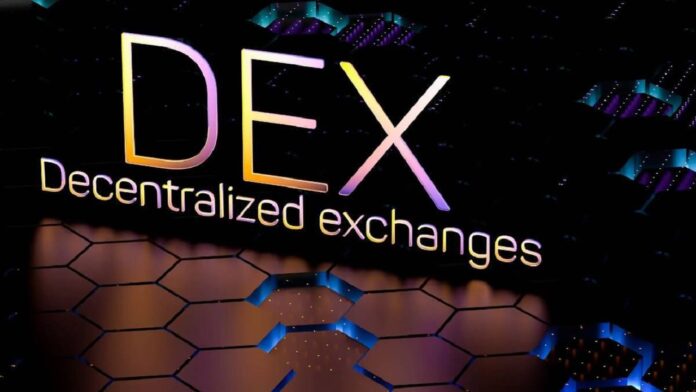The decentralized finance (DeFi) ecosystem is going mainstream, with a surge in institutional participation that is reshaping the industry. Institutions are coming with billions of dollars of capital and a mindset to capitalize on the mass adoption taking place in crypto markets. New cryptocurrencies with real utility are seeing their prices exploding, which can be seen on exchanges like Binance. With institutional investment being directed in this area of the market, we will continue to see DeFi grow significantly.
Decentralized lending is a prime example of where institutional investment is taking place. As John Glover, CIO of the decentralized lending platform Ledn, explained, “We saw a very healthy jump in institutional demand in July, which has remained steady since then.” Glover continued, “Institutional borrowing demand has also been fairly consistent with the overall ETF demand, where there was a similar jump in July.”
Why Institutions Are Entering Decentralized Lending
Yield Opportunities
Institutions have vast investment power and largely exist to get the best rates of return for their customers’ investments. Decentralized lending platforms can offer much higher yield opportunities that can’t happen with traditional financial vehicles. In a time of low and even negative interest rates, generating a profit from capital is more challenging than ever. Decentralized lending is one of the few industries that can provide high-yield returns.
Aave, Compound, and MakerDAO all offer liquidity pool lending with much higher percentage yields (APYs) than old-school savings accounts, bonds, or even stocks. Stablecoins have also provided a means for institutions to place capital in DeFi to access those high returns without the usual volatility risks.
The old money funds didn’t trust crypto enough to bet big on it before, but stablecoins have provided a way to participate without that constant fear of a massive market correction.
Transparency and Security
Blockchain technology is transparent and immutable by design. Smart contracts on the blockchain eliminate people and human oversight, even to the point of permissionless loans based on tokenized collateral. There will be lines in the sand for the institutional investors, and they may not commit fully to DeFi’s capabilities for some time, but the basics appeal.
Growing Maturity of DeFi Protocols
DeFi platforms are implementing a number of old banking features to keep the new wave of institutional investors happy, including much more stringent KYC and anti-money laundering regs compliance.
Platforms like Fireblocks and Anchorage now offer secure, enterprise-grade custodial solutions so institutions can effectively manage their DeFi investments.
The rules and regulations have lagged well behind progress in the crypto space, and institutional investors need compliance and regulations. The sector is catching on to that fact and adjusting accordingly.
Main Drivers of Institutional Adoption
Diversification
Institutions always want to diversify their portfolio, and now, decentralized lending gives access to the digital asset ecosystem. It’s a chance to benefit from high yields while also providing a hedge against potential issues with traditional fiat currency.
Regulatory Clarity
The United States has taken a pro-crypto stance, and numerous other major territories are now following suit with clear and relatively unified regulatory frameworks for crypto and Web3. Clear laws and the Defi platforms themselves taking steps to tighten up have encouraged institutional investment.
Partnerships and Integrations
DeFi protocols are making their own deals with traditional financial institutions to build blockchain-based solutions.
Earlier this year, BlackRock launched its centralized exchange-traded Bitcoin ETFs and later introduced options trading. These would turn into record-breaking financial products.
Aave’s Arc is actually designed for institutional investors and gives a permissioned liquidity pool lending system with many old banking procedures in place to meet institutional compliance requirements.
Implications for the DeFi Ecosystem
Increased Liquidity
The institutional investment flowing in will give significant capital boosts to DeFi protocols. This boosts liquidity, and in the end that leads to stability for the lending platforms and the tokens that the institutional investors embrace.
Enhanced Credibility
Institutions finally dropping their inhibitions and investing in crypto DeFi is a huge boost to crypto’s credibility. This will bring a fresh wave of private investment and potentially force retailers to accept crypto. As more institutions and major companies sign up for the DeFi economy, it will get closer to becoming a critical part of the global financial system.
Innovation in Products and Services
The institutions are bringing their own experience and demands to the table. In response, we’re seeing new forms of structured lending products and tokenized assets. Tokenized assets, including real estate and cars, will allow individuals to borrow money without institutional approval, so this evolution should help shape the industry.
The Future of Decentralized Lending
We’re at the start of a steep institutional investment curve in decentralized lending. It will only ramp up from here and could surpass $1 trillion in annual revenue by 2030. DeFi and traditional finance will almost certainly converge, too, so many conventional bank transfers could be handled by DeFi, and the big brands will combine the two ideals for a complete financial ecosystem.
Conclusion
DeFi is crossing over from the shadows and becoming a foundation of the modern financial system.
Yields are seriously high, the blockchain is transparent, and the developer ecosystem is growing all the time. Now, the regulations are catching up, the big institutions are on board, and we’re about to see unprecedented growth and a period of evolution. These are exciting times.







